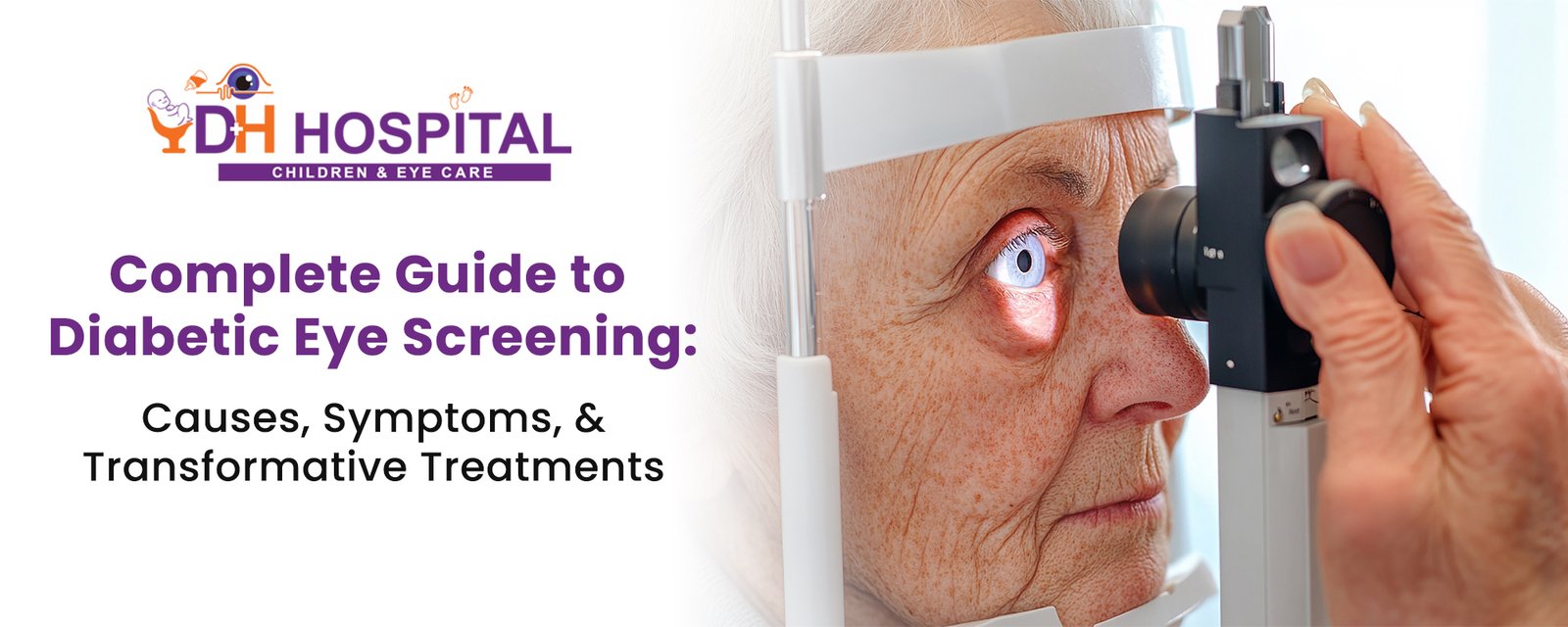


What is Diabetic Eye Screening?
Diabetic Eye Screening is an essential medical procedure for individuals living with diabetes. This screening helps detect early signs of eye damage caused by the disease, such as diabetic retinopathy and other related conditions. With early detection and treatment, vision loss can often be prevented.
Symptoms of Diabetic Eye Problems
Causes of Diabetic Eye Disease
Types of Diabetic Eye Disease
Diabetic Eye Screening Treatment Options
Solutions and Precautions
7 Frequently Asked Questions (FAQs)
1. What is diabetic eye screening?
A test to check for damage to the blood vessels in the retina caused by diabetes.
2. Who should get diabetic eye screening?
Individuals with diabetes, especially those who have had it for several years, should get regular eye screenings.
3. How often should I have my eyes screened?
It is recommended to get your eyes screened at least once a year.
4. Can diabetic retinopathy be cured?
It cannot be cured, but early detection and treatment can prevent vision loss.
5. What are the treatment options for diabetic retinopathy?
Options include laser treatment, injections, and surgery depending on severity.
6. Is diabetic eye screening painful?
No, it is a painless procedure involving retinal photographs.
7. How can I prevent diabetic eye disease?
Maintain good blood sugar control, get regular screenings, and manage blood pressure and cholesterol.
Conclusion
Diabetic eye screening is an essential part of managing diabetes and preventing vision loss. Regular screenings, early treatment, and lifestyle changes can significantly reduce the risk of complications. At DH Hospital, recognized as the Best Eye Hospital in Vijayawada , our expert team offers comprehensive diabetic eye screening and treatment options to protect your vision.